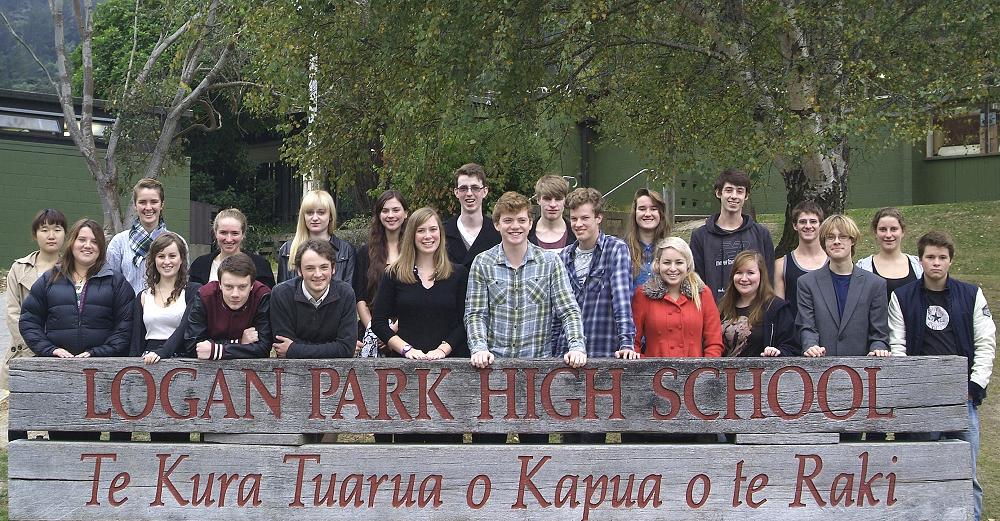
Message from the Principal 2013
Kia-ora students, parents/grandparents, friends and staff in the Logan Park Whānau – this year’s school milestones, comings and goings, educational projects begun and completed have kept us challenged and fulfilled, which you can see for yourselves as you check out our stories within the new electronic format which is our 2013 magazine. That’s right folks – no printed copies! Kua mutu; kua timata.
At senior prizegiving I talked to seniors about the key image in the He Kākano staff professional development programme at Logan Park High School which we have just completed. The key metaphor is the seed or He Kākano. You the students are the seeds and we the teachers are caregivers of the seeds, helping you grow into your potential as well-educated students.
Imagine yourselves as a seed full of potential for your future... What knowledge do you need to flourish? What skills do you hope to develop? What are your strengths? Who are your mentors and role models? Where do you best grow? How can you be supported and protected? How can you live a meaningful life and make a difference?
If you are Māori, you are also likely to ask: Who am I in relationship to others in my Whānau? What are my cultural influences or my family history? Who has come before me? What is my past? Who are my ancestors? Who are my iwi? Where is my place to stand so I can be who I am?
He Kākano e tipu mai (A seed that grows
I te mara matauranga In the garden of knowledge
He Kākano I ruia mai I Rangiātea A seed from Rangiatea.
Ngā pounamu, purapura These seeds are precious
I roto I ngā iwi e and reside in the iwi
Ngā kariri o tēnei ao hurihuri. the seeds from this changing world.)
Why is this Māori view of the world important?
Research and experience tells teachers when Māori students know the prized values, skills and knowledge of their culture, they are more likely to feel empowered by the past…. for their future. If the teacher demonstrates even some cultural knowledge, this has a supportive effect for students’ achievements as they learn and gain qualifications in schools.
“The Whānau, the iwi and the broader community are part of Māori identity and they are ‘a meaningful and relevant part of academic learning.” (Melinda Webber, University of Auckland, Identity and Whakapapa.)
In Māori the word for “teaching” is “Ako”. However Ako means both teaching and learning. The Kaiako, or teacher, means someone who nourishes others with “Ako” or teaching and learning. The teacher is a learner as well and teachers’ learn from feedback from their students about how well students are learning. Students can also teach other students and the teachers.
For Logan Park staff, knowing what makes an effective teacher for Māori students has helped improve our understanding of best practice for all students. Gaining feedback from students is now an accepted and expected part of teaching students well, as is manaakitanga or relationship-building and “next-step” learning.
My challenge to you as seniors and as senior leavers exploring new pathways next year, whether or not you are Māori, is to understand more of what the unique Māori world view is about, in order to enhance and enrich your own identity as a New Zealander looking out on and interacting with the world.
You could also ask yourself, what does being a New Zealander or “Being Pakeha” mean in New Zealand? One of our best writers, Michael King, wrote a book on this significant subject. Spend some time learning who you are and who you are not in ‘mana’ enhancing conversations with your Whānau and friends. Interact with your history and culture.
Eruera Stirling, a famous Māori elder of Whānau a Apanui descent said: “If you gather treasures of whakapa (or family history) and bring them together in one place, you can see the seeds from which you have sprung, and you will stand tall wherever you may travel.”
And so I wish you well with your future travels as a precious seed nurtured in the garden of knowledge that grows season by season.
I would like to thank all of the previous Board, the current Board, senior management and staff for their continued support of student learning at our Kura. For departing staff, I wish you all the best for your next position, taking a break or retirement.
Congratulations to next year’s elected student leaders of the school and Heads of Houses, announced at senior prize-giving. You will no doubt enjoy the challenges ahead in 2014 as much as the leaders and the class of 2013 have done.
Congratulations to Ben Abraham, Head Boy in 2009. He has just become our second Rhodes Scholar announced by the University of Otago and will study a post-graduate degree in Politics at Oxford or Cambridge in UK from 2014.
E te Whānau whanui, tena koutou, tena koutou, tena koutou katoa.
Gallery
